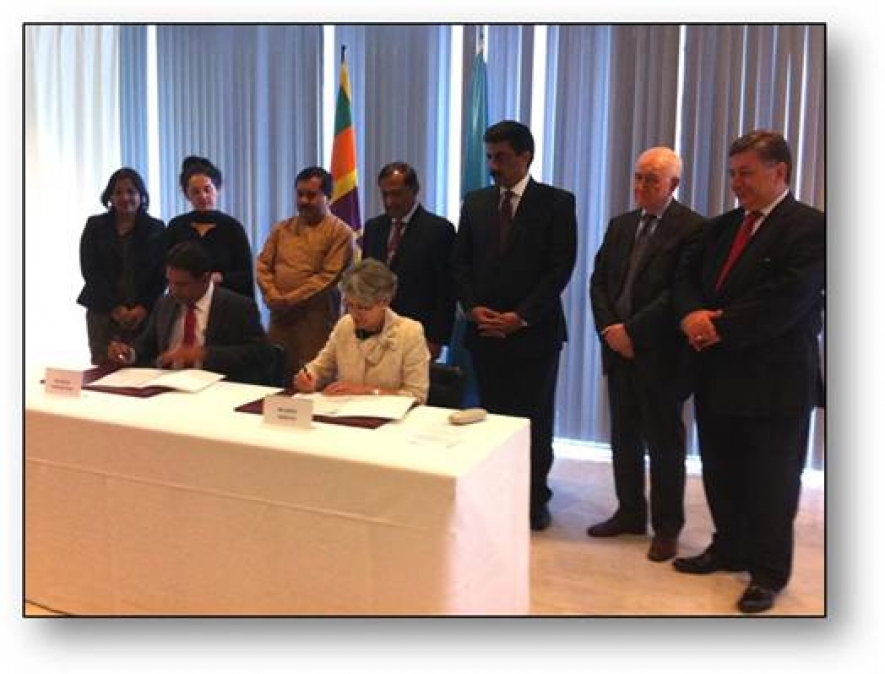The Agreement was signed in the presence of a distinguished gathering including Minister T. B. Ekanayake, Minister of Culture and the Arts, Professor Karunaratne Hangawatte, Ambassador of Sri Lanka to France and Permanent Delegate to UNESCO as well as Ambassador Mohammad Kacem Fazelly of Afghanistan, Ambassador Ruchira Kamboj of India, Ambassador Ghalib Iqbal of Pakistan, Ambassador Huseyin Avni Botsali of Turkey as well as Deputy Permanent Delegate of Bangladesh, Farhana Ahmed Chowdhury and Deputy Permanent Delegate of Nepal, Ram Babu Dhakal.
The establishment of the Centre in Sri Lanka marks a milestone in the education sector of the country as the high literacy rate and the provision of free education are attributes that have been widely acknowledged globally. The institution, while playing a pivotal role in the enhancement of teacher development in the South Asian region is also expected to be replicated in other regions around the world as countries augment education programmes and widen the potential of teachers.
The resolution establishing the Category II Centre was first approved by the 36th session of the General Conference of UNESCO in November 2012 with support from Afghanistan, Algeria, Bhutan, Bolivia, Cambodia, Cuba, Democratic Peoples Republic of Korea, Democratic Republic of Congo, Djibouti, Egypt, Greece, Guatemala, India, Indonesia, Iran, Iraq, Ivory Coast, Japan, Jordan, Kenya, Kuwait, Laos, Lebanon, Malaysia, Mali, Mongolia, Morocco, Nepal, Pakistan, Philippines, Russian Federation, Saudi Arabia, Senegal, Singapore, Sudan, Syrian Arab Republic, Thailand, United Arab Emirates, Venezuela, Viet Nam, Yemen, Zambia and Zimbabwe. Final clearance was obtained at the recently concluded session of the Executive Board of UNESCO in April 2014.




















